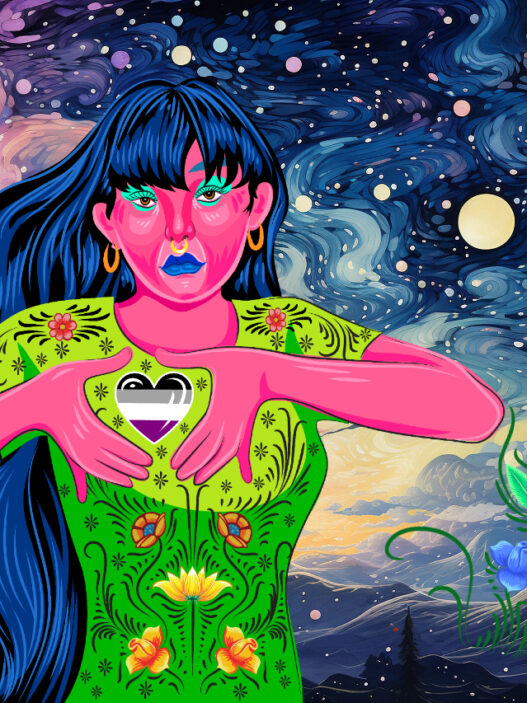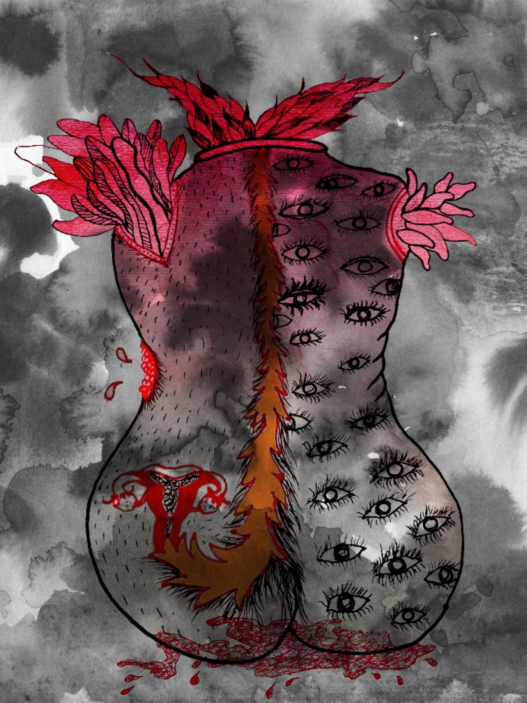Introduction:
The intersection of religion and sexuality has been a subject of debate for centuries, and the LGBTQ+ community has often found itself at the center of these discussions. In recent times, the concept of deism has emerged as a potential alternative for those seeking a religious or spiritual framework that respects individual freedoms, including sexual orientation. This article explores the question of whether God intervenes in queer lives and considers whether deism provides a more inclusive perspective for the LGBTQ+ community.
Deism and Reason:
Deism, at its core, advocates for the exploration of sexuality and all aspects of life through reason. For deists, the study of nature, including the behavior of animals in sexual matters, is seen as a means of understanding the natural order created by God. Unlike some traditional religious perspectives, deism rejects supernatural intervention, emphasizing the importance of rational inquiry.
Morality and Sexuality:
Deists approach questions of morality, including those related to sexuality, with a universal lens. The guiding principle is whether a particular sexual act harms anyone involved. This perspective echoes the values of consent and personal freedom, emphasizing that adults should be free to pursue their chosen forms of sexuality without interference from external authorities.
Nature and Sexuality:
A key aspect of deism involves observing the natural world to gain insights into the divine. Examining the roles of males and females in the beehive, for example, highlights the diversity of sexual behaviors in nature. While procreation is a fundamental aspect of sexuality, deism acknowledges the existence of diverse sexual orientations and rejects the notion of condemning individuals for living outside traditional norms.
“Homosexuality in Islam
The Qur’an explicitly addresses homosexuality in verses such as (7:80-84):
“…For ye practice your lusts on men in preference to women: ye are indeed a people transgressing beyond bounds…. And We rained down on them a shower (of brimstone).”Although no explicit reference to lesbianism exists in the Qur’an, some lesser hadiths (sayings and traditions of Prophet Muhammad) state:
“If a man comes upon a man, they are both adulterers.”
“If a woman comes upon a woman, they are both adulteresses.”Homosexuality in Christianity
The Bible, specifically in Leviticus, contains harsh condemnations of homosexual acts:
- “Homosexual acts are an abomination to God” (18:22).
- “If a man has sex with another man, kill them both” (20:13).
Homosexuality in Judaism
As Leviticus is also part of the Torah, these verses represent the stance of Judaism on homosexuality. While references to homosexuality often focus on male same-sex relations, they can be understood generically to include lesbianism as well.The Abrahamic View of Sexuality
Taken together, these texts from Islam, Christianity, and Judaism affirm that heterosexuality is the only acceptable form of sexual orientation under the Abrahamic traditions. However, Deists, who regard Nature as the “Word of God,” must turn to the natural world to understand sexuality’s manifestations.Sexuality in Nature
Human beings, as part of Nature, provide a starting point. Anatomically, the primary biological purpose of sexuality may be procreation. However, labeling homosexual individuals as “sexually handicapped” is reductive and ignores the broader roles of sexuality. Moreover, using religious doctrine to justify violence against LGBTQ+ individuals is unreasonable and morally indefensible.Insights from the Animal Kingdom
- Bees: In the beehive, female worker bees have no reproductive role but dedicate their lives to serving the Queen, the hive’s sole fertile female. This dynamic highlights the diversity of sexual and reproductive roles in Nature.
- Primates: Female dominance exists in certain species, such as prosimians, demonstrating variability in gender roles.
- Homosexuality in Animals: Studies show over 1,500 animal species, including dwarf chimpanzees (one of humanity’s closest relatives), exhibit homosexual behavior. Dwarf chimpanzees, in fact, are predominantly bisexual. Such evidence undermines claims that homosexuality is “unnatural.”
(Reference: News-Medical)Sexual Diversity in Nature
Asian Network of A-Spec Queer Activists
Nature showcases immense sexual diversity, often challenging traditional norms. For instance, seahorses are unique for male pregnancy, illustrating that sexuality and reproduction extend beyond rigid binaries.
Deist Perspective on Sexuality
If Nature is regarded as the Deist’s “Word of God,” it becomes evident that sexuality’s diversity is an inherent and valued part of creation. This liberal and inclusive perspective starkly contrasts with the restrictive sexual norms espoused by Abrahamic faiths, which primarily associate sexuality with reproduction.”
Deism, derived from the Latin Deus, meaning “god,” is a philosophical stance that rejects divine revelation and emphasizes Reason as a guide to understanding God and the universe. Within the Deist worldview, the diversity of sexuality is considered a natural and accepted aspect of creation.
Atheism, Humanism, and Morality:
Contrary to some beliefs, atheism does not necessarily divorce itself from moral considerations. Atheism can be a form of secular humanism, rooted in a moral vision that embraces progressive humanitarianism and the belief in universal moral values. This perspective stands in contrast to theistic ideologies that claim exclusive ownership of morality.
Queerness and Biological Nature:
The article acknowledges the biological foundation of human existence and the undeniable fact that sexuality serves a procreative purpose. However, it argues against deeming homosexual individuals as sexually handicapped and rejects the use of violence or discrimination against them based on their sexual orientation.
God’s Business and Individual Freedom:
The core message conveyed is that, as long as sexual activities involve informed and consenting adults, it is a matter for individuals and their personal relationship with God. Human sexuality is a matter unrelated to God’s concerns; it is a realm of personal freedom for each individual. The article emphasizes the immorality of condemning people to death or harm due to their sexual preferences, asserting that such actions are not in alignment with the principles of Nature’s God.
Conclusion:
In the pursuit of understanding the divine and navigating questions of morality, deism emerges as a potential ally for the queer community. With its emphasis on reason, morality, and individual freedom, deism offers an inclusive perspective that respects the diversity of human sexuality. Ultimately, the article encourages a compassionate and open-minded approach, urging society to move away from judgment and violence towards a more accepting and understanding coexistence.












